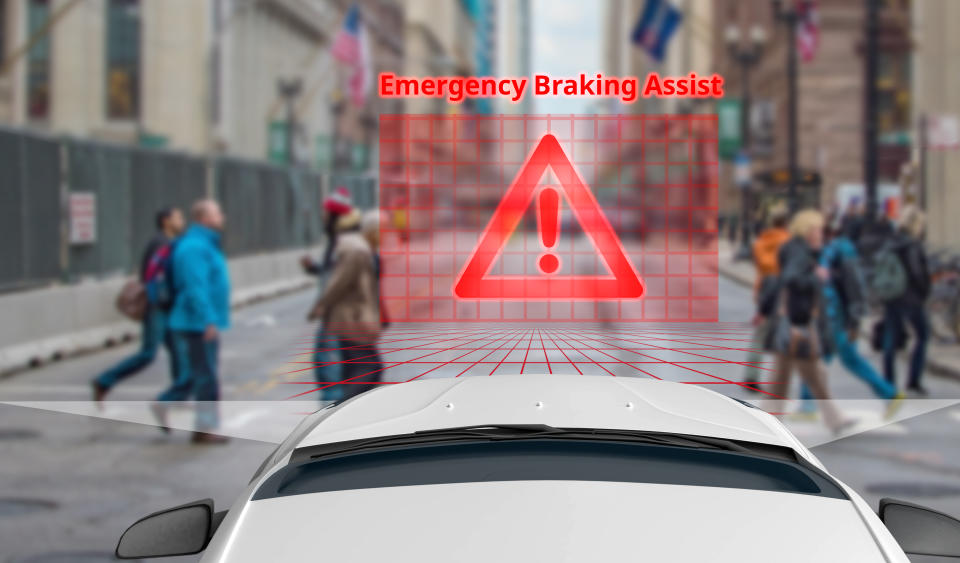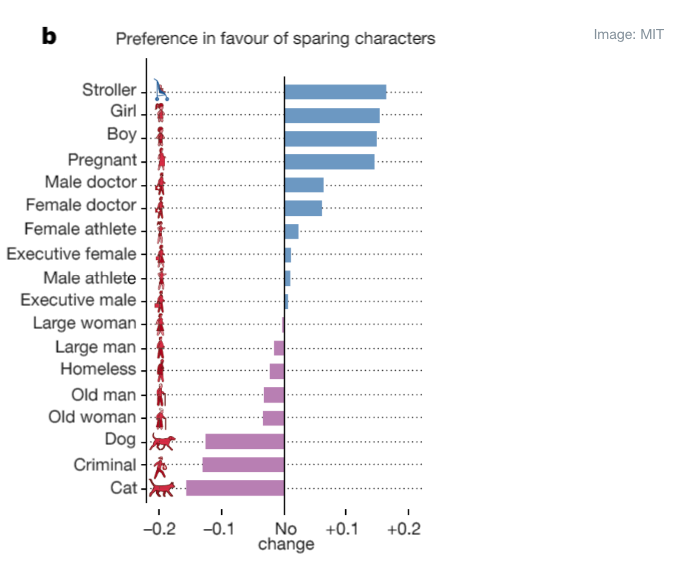How will self-driving cars choose who dies in a fatal crash?

In a perfect world, self-driving cars will get us from A to B, reduce congestion and pollution and reduce the number of accidents.
But accidents will still occur, raising the question of who a self-driving car would choose to spare in a fatal collision.
Researchers at MIT have been pondering that question, and the findings of a major poll reveal some rather shocking results.
The poll of over 2 million participants revealed there were three distinct preferences.
Self-driving cars should favour human lives over the lives of other animals;
Where there’s a choice between a small or large group of people, the larger group of people should be spared; and
Younger lives should be spared over older lives.
To carry out the survey, the MIT researchers built a ‘Moral Machine’, which was a multilingual online game in which the participants would state their preferences in a series of situations self-driving cars may face.
For instance, should self-driving cars spare the lives of jaywalking pedestrians, or should they save bystanders? Most respondents opted for the latter.
Likewise, worryingly respondents suggested that the life of a dog should be spared in place of a criminal.
These were some of the most interesting findings:

“Never in the history of humanity have we allowed a machine to autonomously decide who should live and who should die, in a fraction of a second, without real-time supervision,” the researchers said.
“We are going to cross that bridge any time now, and it will not happen in a distant theatre of military operations; it will happen in that most mundane aspect of our lives, everyday transportation.
“Before we allow our cars to make ethical decisions, we need to have a global conversation to express our preferences to the companies that will design moral algorithms, and to the policymakers that will regulate them.”
The researchers also noted that deploying complex choice structures may not be the solution, and authorities could instead choose a simple rule like “let the car always go onward”, rather than swerve.
And authorities will also need to grapple with discrimination laws that could mean favouring the lives of the young or female over the old and male.
Make your money work with Yahoo Finance’s daily newsletter. Sign up here and stay on top of the latest money, news and tech news.
Now read: The investment trend that could ruin your retirement
Now read: 4 tech products that will help you save $5k by the end of the year
Now read: Five paintings by ‘Hitler’ fail to sell at controversial auction

 Yahoo Finance
Yahoo Finance 
